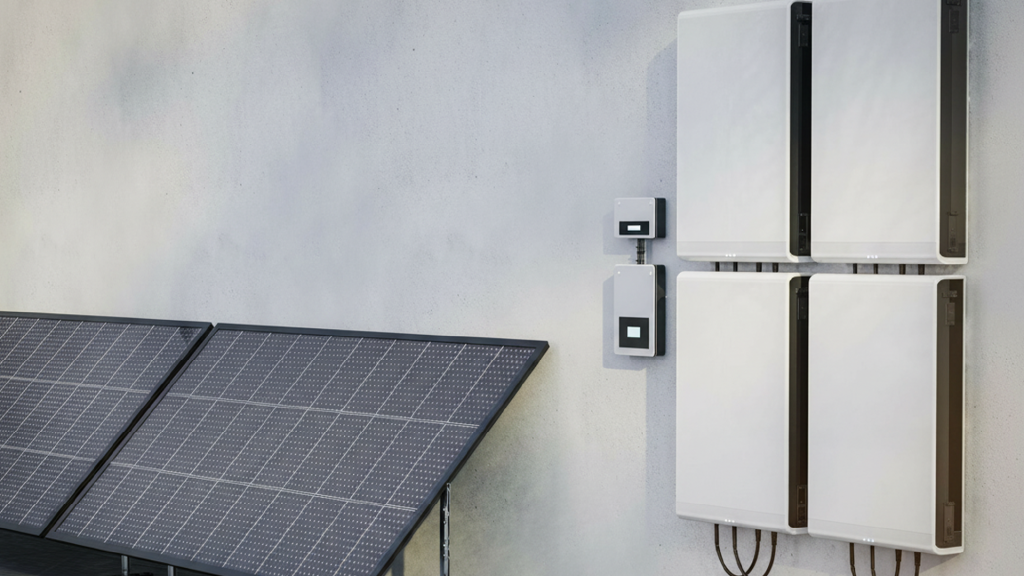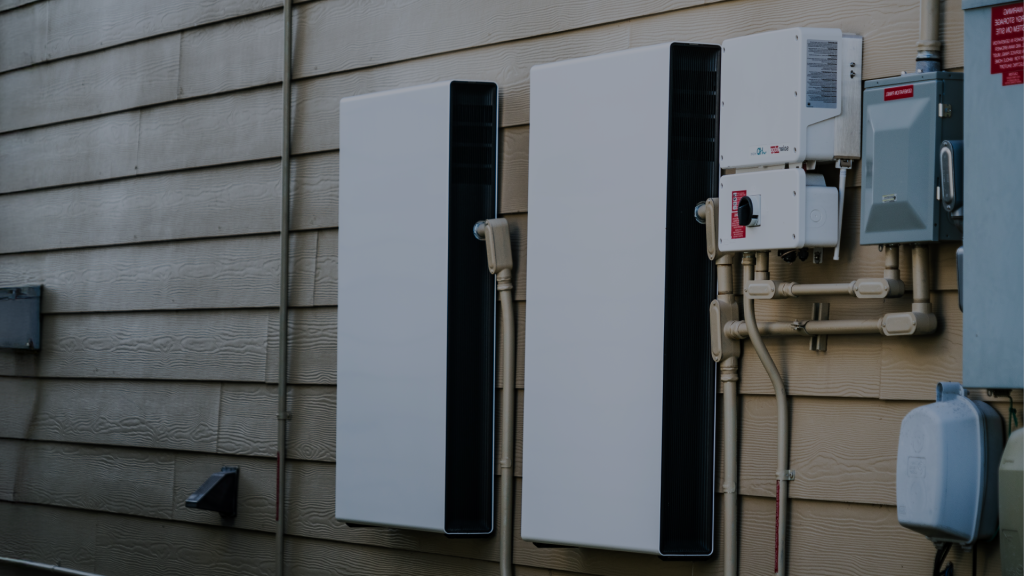So do solar panels work on cloudy days, and are they even worth the money? There are a lot of myths about solar power systems, and today we’re responding to a few of the most common to help you sort fact from fiction.
If you’re considering a solar installation for either a residential or business property, these are some of the things you need to know.
What myths have we covered today?
- Solar panels don’t work on cloudy (or rainy) days
- Solar panels won’t pay back their own cost
- Cheaper solar panels pay for themselves more quickly
- I don’t use power during the day, so solar isn’t worth it
- You can’t use solar power at night
- Solar panels will damage my roof
- Solar panels require maintenance
- The fire brigade can’t put out a fire if a property has solar
Myth 1
Solar panels don’t work on cloudy (or rainy) days
False
Solar panels are designed to operate in a variety of conditions, including bad weather. In fact, it’s worth remembering that all of the panels available in Australia were designed for other countries – with much worse weather than ours.
Solar panels work by converting energy from the sun into electricity, and that energy still gets down to Earth even when there’s cloud in the way. Come rain or shine, you can expect your solar panels to produce electricity.
Myth 2
Solar panels won’t pay back their own cost
False – though this depends partly on the buyer
When you buy the correct solar system for your property, it should usually pay itself back within a few years. In fact, the average solar payback period for this country is about five to 10 years – meaning the payback period sits roughly within the warranty period. Not bad!
Is there any risk it won’t pay itself back?
This depends more on the buyer than the panels.
Every property in Australia is different, and requires a slightly different system to maximise the balance of budget, payback and free power. In the past, some property owners have gone overboard buying the biggest, flashiest system they could get, only to find they couldn’t get their money’s worth – that’s where the myth comes from.
When purchasing solar panels, you need to make sure you get a right-fit system designed to suit your property and expectations. That’s why we always recommend asking for a professional solar installer’s help selecting the right system.
Something else to keep in mind is you don’t have to pay full price for an installation
Across Australia there are a variety of state and federal government rebates to reduce the installation costs of your solar system, plus various private finance companies who offer interest-free loans, $0 down payments and monthly payment plans too.
To learn more about these, get in touch and we’ll walk you through your options.
Myth 3
Cheaper solar panels pay for themselves more quickly
Mainly False
This is another common myth.
Often, getting the cheapest-possible solar system means installing fewer panels with poorer quality, which generates less power and, thus, saves less on your electricity bills. These brands can also lack good technical support, meaning if something goes wrong you aren’t as well covered.
Just like it’s possible to go too far when buying your solar system, there’s also such a thing as “too good to be true”. If you aren’t confident about what to buy, a reputable solar installer is the first person to call.
Myth 4
I don’t use power during the day, so solar isn’t worth it
False
Every house consumes power during the day whether you’re home or not. Your fridge, hot water cylinder, any air-con running for the pets, appliances and gadgets on standby – it all consumes a baseline level of energy. In fact, a smart TV could cost you as much as 54 cents per hour while on standby (Canstar Blue). That’s a lot of electricity each year!
So, even if you aren’t home, a solar power system helps to pay for all of that ‘phantom load’, as it’s sometimes called. And hey, if you know you’ve got free power during the day, why not set timers to run more appliances while the sun is shining – like your washing machine or dishwasher?
Myth 5
You can’t use solar power at night
True (without a battery); False (with a battery)
It’s true that solar panels don’t work at night, so if you don’t have added battery storage then your system will stop running.
But, with the simple addition of a solar battery you can store all the excess power you don’t use during the day and then consume it at night. This is an excellent way to get more value out of your investment, moving your peak energy consumption hours to stored solar power and cutting down on your bills in the process.
Learn more: What to look for when buying a solar battery
Myth 6
Solar panels will damage my roof
Usually False
A solar power system is like any other major property upgrade – when it’s installed correctly, it stands the test of time, resists harsh weather conditions and, in many cases, improves your property value. When installed incorrectly, the opposite may become true.
Yes – a poor-quality installer may damage your roof during the installation process, or leave the job done in such a way that, the next time bad weather come along, your panels are damaged beyond repair. A professional installer wouldn’t make these mistakes.
Learn more: How to find a trustworthy solar energy installer in Australia
Myth 7
Solar panels require maintenance
True
Solar panels do indeed require a bit of maintenance each year, though not too much.
Mainly, as a property owner you’ll get the most out of your system if you give it a check and a clean twice a year. Cleaning is fairly easy, not much more than a hose down (learn more about cleaning solar panels here).
It’s also recommended that you get a professional solar servicing at least annually, so a professional can check the condition of the panels, frame, connections and wiring.
Myth 8
The fire brigade can’t put out a fire if a property has solar
False
We’re not quite sure where this myth came from, but it has persisted for many years. There are many around Australia who have heard stories that their local fire brigade won’t attend their property if they have solar panels, or if they do attend, they might let it burn out of fear the panels pose a risk to firefighters.
This is absolutely untrue.
But don’t take it from us – in a press release over a decade ago (that’s how long we’ve all been fighting this myth), South Australia’s then-Metropolitan Fire Service (MFS) District Officer of Community Safety, Allan Foster, said this:
“South Australia’s […] firefighters are well trained to handle structure fires and to mitigate any risks involved – this includes fires at properties with solar power supply.”
“I’d like to assure the public that no matter what power supply exists at a property, firefighters are well prepared and educated to bring a fire under control.”
Even now, the South Australian MFS building has solar panels on its roof, and they would know if it’s safe or not!
Putting it all together…
Solar power systems can be an excellent investment, helping you save on your power bills, get away from the grid and do your part for the planet. If you take time to choose the right system for your property, and you work with a professional to ensure it’s installed correctly, you’ll minimise the risk of damage and maximise the benefits.
Need help? We have offices across Australia and can walk you through which set-up is right for you, how much you might be able to save and any available incentives or payment plans. Book a free, no-obligations consultation and let’s chat.






